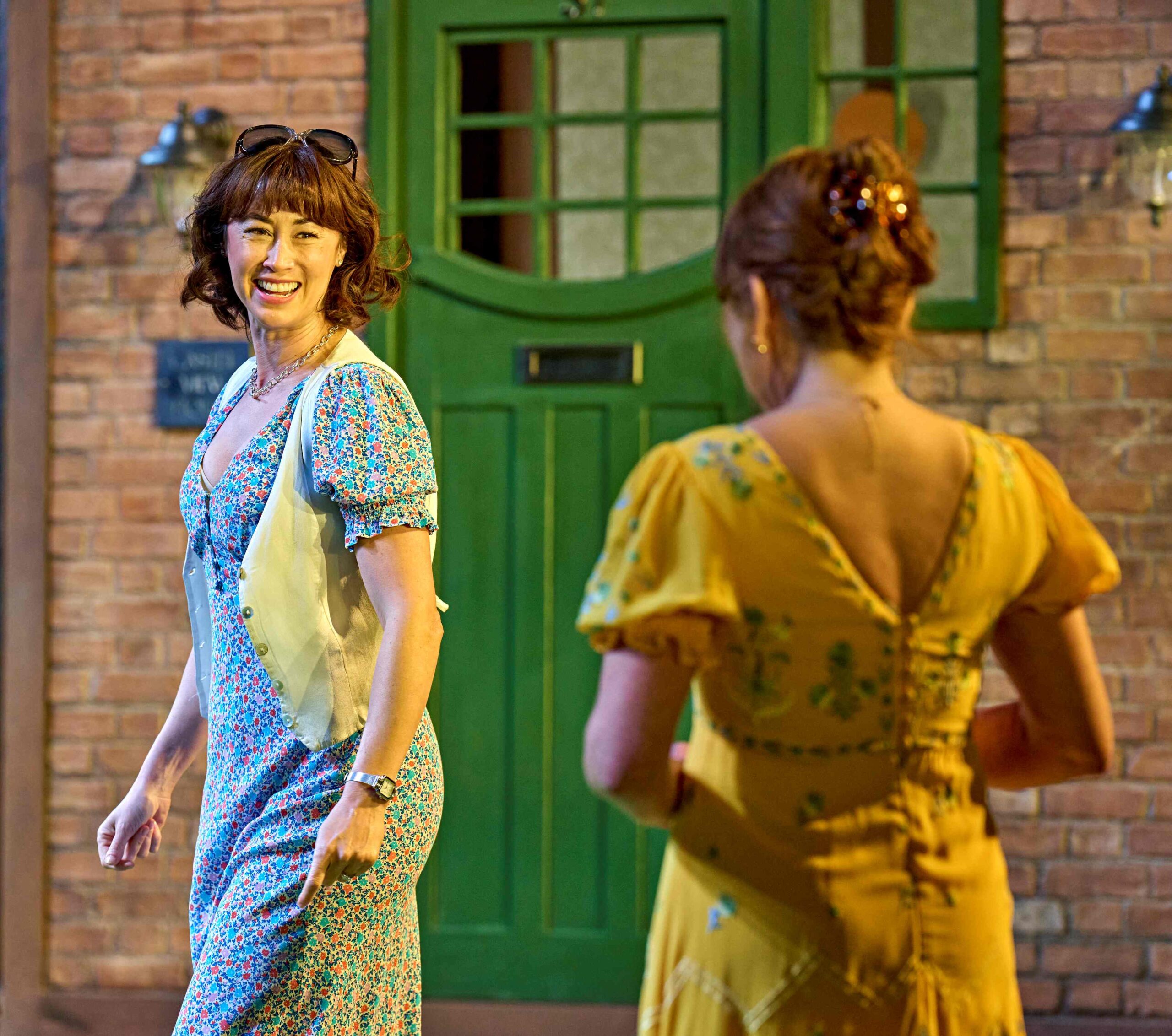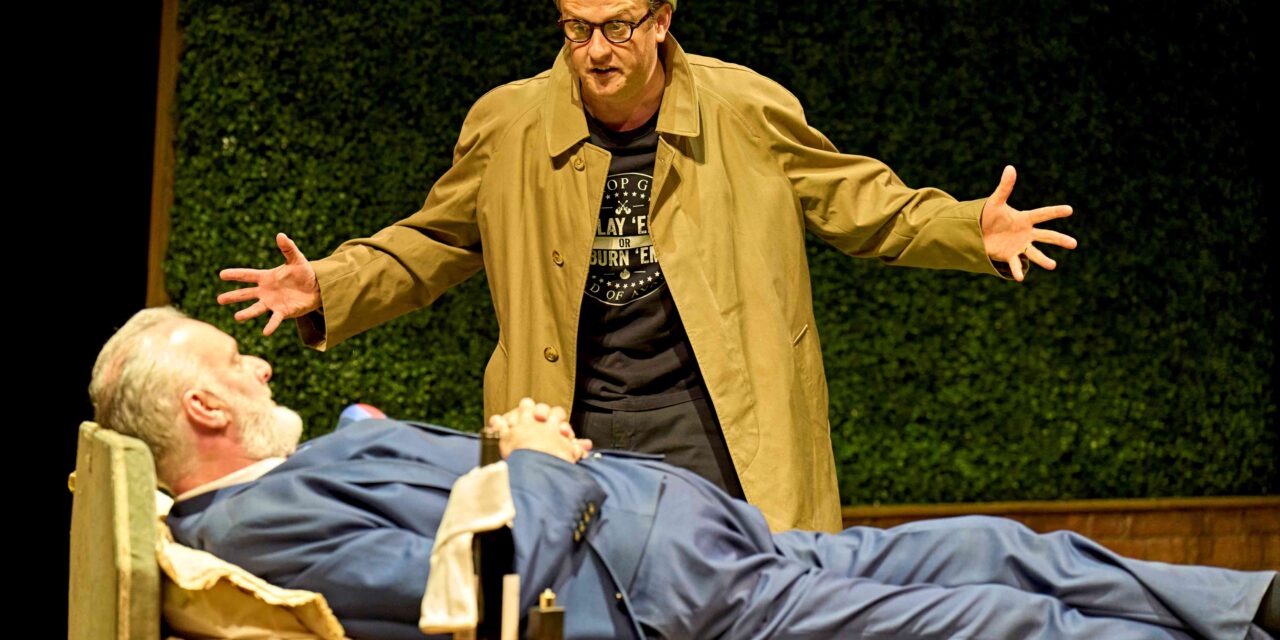
8 June – 7 September
Shakespeare’s most middle class and domestic comedy gets rumbustious treatment in this fast-paced new production. At times, particularly in the opening scenes, the energy level means that the complex story lines are hard to follow, with too many loud voices competing for attention. The show takes a while to settle down. But when it does, it dazzles and delights.
Director Blanche McIntyre has done an effective job of translating the Elizabethan setting to a contemporary suburban estate. The set by Robert Innes Hopkins is a central revolving structure, acting as the Garter Inn and three private houses. This is the England we know, complete with loutish football fanatics, artificial lawns, yummy mummies in gym gear and pompous older men in red trousers. Towering over them all is John Hodgkinson’s superb Falstaff. His performance is an athletic tour de force, both physically and vocally. Whether crawling across the floor like the infamous ‘cat’ in mock obeisance to the object of his lust, or diving headfirst into the laundry basket, Hodgkinson commands our attention. His journey from inflated narcissist to the defeated butt of cruel pranks is perfectly timed and brings to mind any number of disgraced politicians.
Richard Goulding’s Ford is his ideal foil. Where Falstaff is all surface and bombast, a man who barely knows himself, in Ford, and particularly in his disguise as Brook, we sense genuine pain. Shakespeare’s dramatic genius is wonderfully apparent in the men’s poignant two hander, a rare glimpse of something deeper in a play where the themes are largely transactional and the comedy for the most part merciless.
The two wives are an engaging duo with Samantha Spiro as the lively interfering Mistress Page and Siubhan Harrison as the more serene Mistress Ford. The farcical seduction scenes are brilliantly effective with Page’s machinations and Ford’s quiet contempt acting as perfect encouragements to full-blooded Falstaffian bluster. And Shazia Nicholls sheds a totally new light on Mistress Quickly as a home counties dental nurse with an eye to the main chance.
A key aspect of the production is the way in which the director is unafraid to use stereotypes to comic advantage. The Caius /Evans sub plot is given full vent. Jason Thorpe is stunning as the arrogant French doctor, reinvented as a dentist, striding the plastic turf like a cross between Nicholas Sarkozy and Napoleon Bonaparte, milking every opportunity for a laugh. Nor does Ian Hughes hold back in his portrayal of the wordy Welsh cleric, even breaking into song at an inappropriate moment. Every nationality becomes the object of ribaldry, with Falstaff and his followers demonstrating the worst of English hypocrisy and oafishness.
With all this emphasis on the modern world, it’s hard to engage fully with the final humiliation, when Falstaff is persuaded to dress as Herne the Hunter and wait for the women by the great oak in Windsor Park. The setting is magical, yet it feels incongruous after so much earthy humour. This is not the only issue with the ending. Despite the overt statement that everyone is forgiven and all is for the best, there is no escaping the mistrust and ruthlessness that brought us here. Young lovers are united, marriages endure. Yet, there is always a bitter aftertaste to The Merry Wives and this only becomes more pronounced in its 21st Century reimagining.


